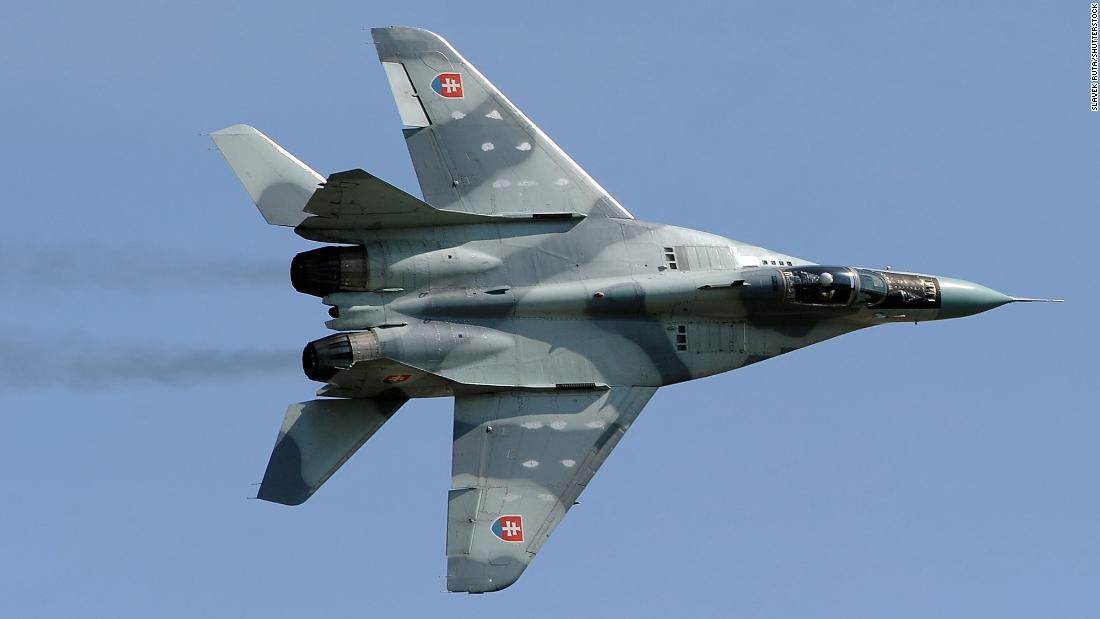
Biden says the ICC’s war crimes case against Putin is justified
From CNN’s Nikki Carvajal and Jeremy Diamond
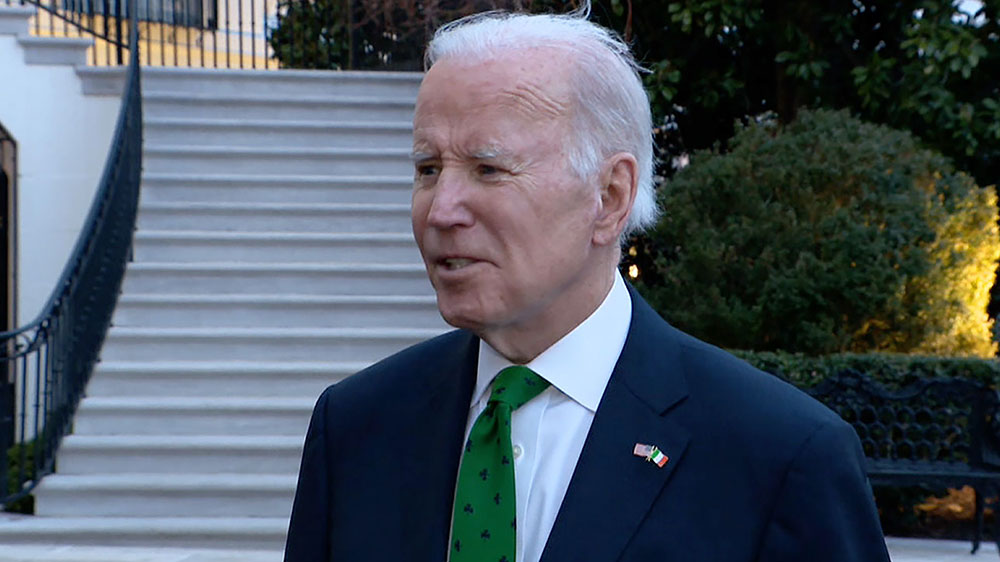
US President Joe Biden said the arrest warrant issued by the International Criminal Court for Russian President Vladimir Putin “makes a very strong point.”
“I think it’s justified,” Biden told CNN’s Jeremy Diamond on Friday.
The US leader acknowledged the court’s authority is not recognized by Russia or the US, “but I think it makes a very strong point,” he said.
Putin has “clearly committed war crimes,” Biden added.
The White House said it welcomed accountability for perpetrators of war crimes but stopped short of a full-throated endorsement of the ICC’s arrest warrant when it issued an initial statement earlier Friday.
National Security Council spokesperson John Kirby declined to say whether Biden would tell law enforcement to arrest Putin if he came to the US. Putin traveling to the country in the first place is “very, very unlikely,” Kirby told CNN’s Jake Tapper.
International wheels of justice beginning to turn, Ukrainian ambassador to US says
From CNN’s Mary Kay Mallonee
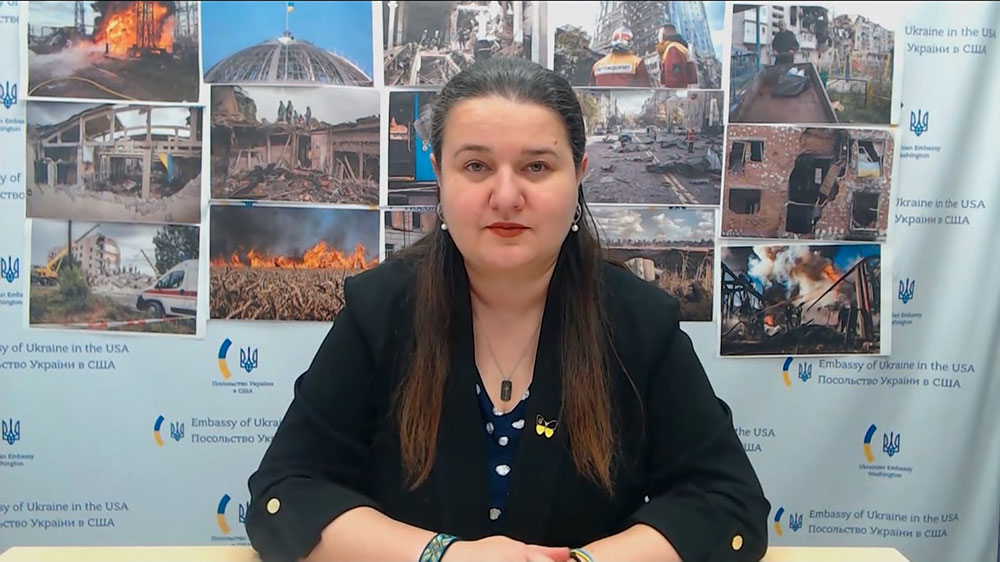
The International Criminal Court’s decision to issue an arrest warrant for Russian President Vladimir Putin for war crimes means that “the international justice wheels” have begun to turn, Ukrainian Ambassador to the United States Oksana Markarova said Friday.
It’s symbolic that the first crime for which Putin now faces an arrest order is “the most horrific one,” the forceful deportation of children, she told CNN’s Wolf Blitzer.
The ICC said Putin and the Russian commissioner for children’s rights, Maria Lvova-Belova, are both responsible in the alleged scheme to forcibly deport thousands of Ukrainian children to Russia.
Markarova called on ICC states to uphold the warrant, warning Putin the only “safe travel” should be his journey to the Hague, where the court operates. She said all Ukrainians deserve to see Putin face trial.
The ICC issued an arrest warrant for Vladimir Putin. Here’s what you need to know
From CNN staff
The International Criminal Court (ICC) has issued arrest warrants for Russian President Vladimir Putin and the Russian commissioner for children’s rights, Maria Lvova-Belova for their roles in the alleged scheme to forcibly deport thousands of Ukrainian children to Russia.
Moscow said the court has “no meaning” for the country, as Ukrainian officials praised the announcement.
Here’s everything you need to know:
- Arrest warrants: The court said there “are reasonable grounds to believe that Mr. Putin bears individual criminal responsibility” for the alleged crimes, for having committed them directly alongside others, and for “his failure to exercise control properly over civilian and military subordinates who committed the acts.” ICC Chief Prosecutor Karim Khan said no one should feel like “they have a free pass” and it is not outside the realm of possibility that Putin could be tried at some point.
- Reports of Ukrainian children in Russia: The Ukrainian government says many missing children have been forcibly taken to Russia. The Russian government doesn’t deny taking Ukrainian children and has made their adoption by Russian families a centerpiece of propaganda. Some of the children have ended up thousands of miles and several time zones away from Ukraine. According to Lvova-Belova’s office, Ukrainian kids have been sent to live in institutions and with foster families.
- Russian reaction: Russia has characterized reports of forcible relocation as “absurd” and said it does its best to keep minors with their families. A government spokesperson also said Moscow rejects the arrest warrant for Putin, with the Kremlin adding that it is “outrageous and unacceptable.” Lvova-Belova dismissed the warrant, saying it is “great” that the international community has noticed her work, according to Russian state news agency TASS.
- Ukraine applauds ICC: Ukrainian President Volodymyr Zelensky said it is a “historic decision that will lead to historic responsibility.” Zelensky’s chief of staff, Andriy Yermak said the warrants are “just the beginning.” So far, Ukrainian officials have been able to return 300 children who had been forcibly deported to Russia.
- How the ICC works: Anyone accused of a crime in the jurisdiction of the court, which includes countries that are members of the ICC, can be tried. The court tries people, not countries, and focuses on those who hold the most responsibility: leaders and officials. While Ukraine is not a member of the court, it has previously accepted its jurisdiction. The ICC does not conduct trials in absentia, so Putin would either have to be handed over by Moscow or arrested outside of Russia.
Other key headlines from the war:
- Other possible war crimes: The independent UN human rights commission released a report that concluded Russia committed abuses and atrocities that likely amount to war crimes and crimes against humanity.
- NATO: Turkey and Hungary’s ruling party have decided to start the process of ratifying Finland’s accession to NATO, the countries’ leaders said. Finland — along with Sweden — both announced their intention to join NATO in May, after Russia’s invasion of Ukraine caused a sudden shift in attitudes toward joining the bloc.
- Drone downing: The US is conducting an assessment of its drone operations in the Black Sea area, several officials told CNN. The Pentagon plans to compare the potential intelligence value of a particular route versus the risk of escalation with Russia, they said.
- Slovakia joins Poland in pledging fighter jets to Ukraine: They are the only two NATO countries that have granted Kyiv’s repeated requests for aircraft in order to shore up its air defenses. Poland pledged four MiG-29 fighter jets and Slovakia will send 13.
- China’s president to meet Putin next week: Putin and Chinese President Xi Jinping plan to discuss the war in Ukraine and will sign documents attesting to their closer ties when they meet in Moscow next week, a Putin adviser told Russian state media. US officials said they will be eyeing the meeting closely as China considers sending weapons to Russia.
Top US officials get update on battlefield conditions in Ukraine
From CNN’s Nikki Carvajal
National Security Advisor Jake Sullivan, Secretary of Defense Lloyd J. Austin III, and Chairman of the Joint Chiefs of Staff Gen. Mark A. Milley spoke with Ukrainian officials Friday, the White House said in a readout of the meeting.
“The Ukrainian officials provided an update on battlefield conditions and expressed appreciation for the continued provision of U.S. security assistance,” the White House said. “The U.S. officials reaffirmed the unwavering support of the United States for Ukraine as defends its sovereignty and territorial integrity.”
Ukrainian President Volodymyr Zelensky joined at the end of the call, the White House said.
US will keep helping Ukraine document war crimes, White House official says
From CNN’s Nikki Carvajal
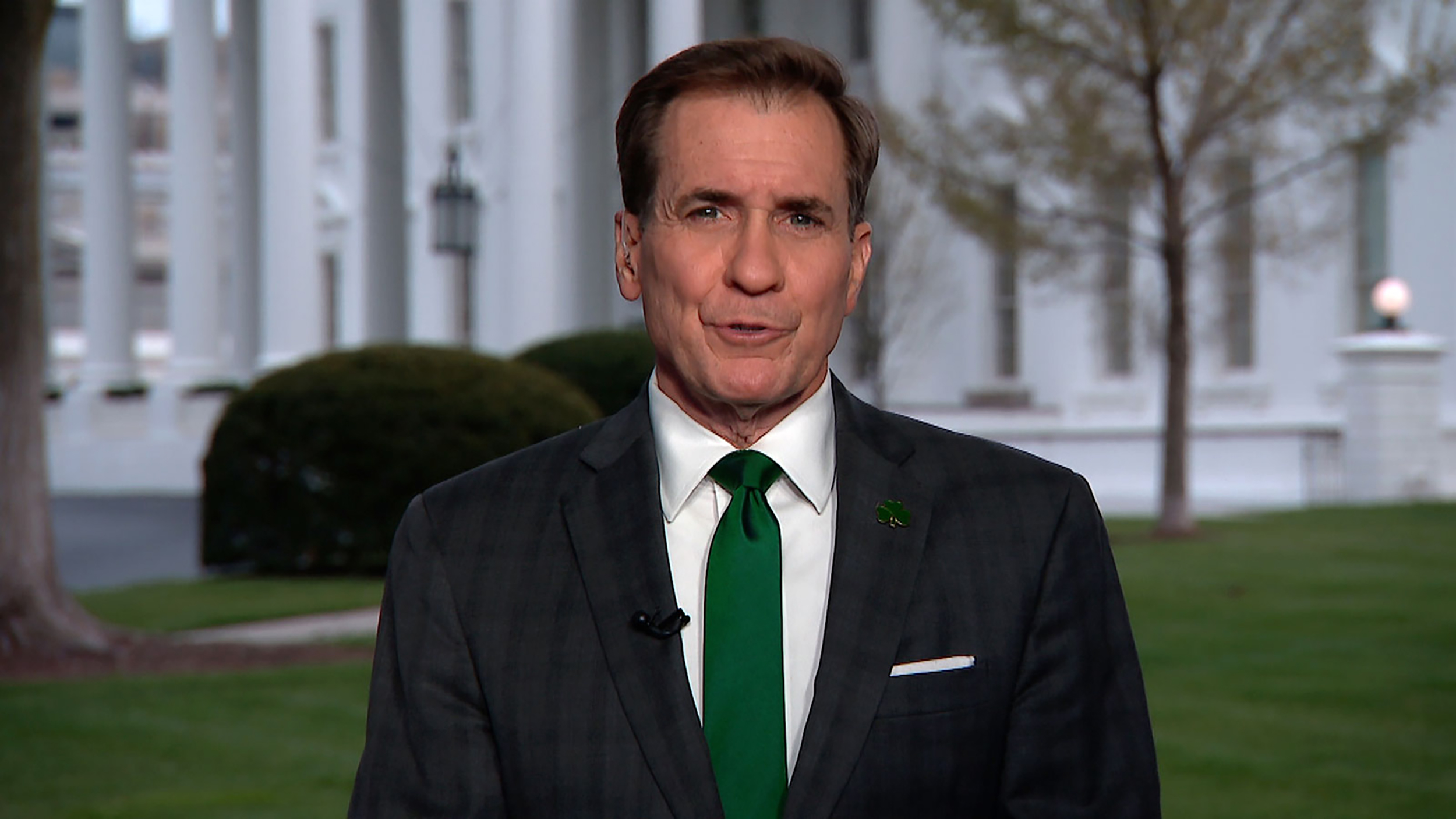
The White House says it “remains to be seen” whether Russian President Vladimir Putin will ultimately face justice for alleged war crimes after the International Criminal Court issued a warrant for his arrest Friday, but the US will continue to help Ukraine document Moscow’s misdeeds.
“We’re going to stay committed to helping Ukraine as they document and analyze and preserve the kinds of evidence of the war crimes, the atrocities, the crimes against humanity that have occurred inside Ukraine at the hands of Russian forces,” National Security Council Coordinator for Strategic Communications John Kirby told CNN’s Jake Tapper on Friday.
The United States does not recognize the ICC, but Kirby said the US is “not going to back off our belief that accountability for these war crimes has got to be had, however long that takes.”
Kirby said the US wants to see “any perpetrators of war crimes held to account,” but he declined to say if US President Joe Biden would tell law enforcement to arrest Putin if he came to the US. He said it was “very, very unlikely” the Russian leader would travel to the United States.
Asked if the US would ask other countries like Israel or India – who also do not recognize the ICC – to arrest the Russian leader, Kirby said it would “have to be sovereign decisions those leaders make.”
Remember: Russia also does not recognize the ICC, and the court does not conduct trials in absentia, so Putin would either have to be turned over by Moscow or arrested in a foreign country for him to face charges from the court.
Moscow’s ties to Beijing: Tapper also asked Kirby if there was any intelligence indicating China has decided to give Russia weapons to help with the country’s assault on Ukraine.
“We don’t believe that they’ve taken it off the table still, but we also don’t see any indication, any confirmation, that they’re moving in that direction or that … they have sent lethal weapons,” Kirby said.
“We don’t think it’s in their interest. It shouldn’t be in anybody’s interest, quite frankly, to help Mr. Putin continue to slaughter innocent Ukrainians,” he added.
Chinese leader Xi Jinping will fly to Moscow next week to meet with Putin in his first visit to Russia since Putin launched his devastating invasion of Ukraine more than a year ago.
The visit will be seen as a powerful show of Beijing’s support for Moscow in Western capitals, where leaders have grown increasingly wary of the two nations’ deepening partnership as war rages in Europe.
CNN’s Nectar Gan and Anna Chernova contributed to this report.
US supports “accountability for perpetrators of war crimes” in wake of ICC warrant for Putin
From CNN’s Jeremy Diamond and Kylie Atwood
The United States supports “accountability for perpetrators of war crimes,” National Security Council spokesperson Adrienne Watson said in a statement, hours after the International Criminal Court issued an arrest warrant for Russian President Vladimir Putin,
“There is no doubt that Russia is committing war crimes and atrocities in Ukraine, and we have been clear that those responsible must be held accountable. The ICC Prosecutor is an independent actor and makes his own prosecutorial decisions based on the evidence before him. We support accountability for perpetrators of war crimes,” Watson said.
Watson’s statement notably did not explicitly express support for the ICC’s efforts to prosecute Putin for alleged war crimes.
The ICC issued warrants for both Putin and Russian Commissioner for Children’s Rights Maria Lvova-Belova over an alleged scheme to forcibly deport thousands of Ukrainian children to Russia.
While 123 countries are parties to the treaty that created the ICC, they don’t include either the US or Russia.
What the US has said about alleged crimes: The US government declared last Marchthat members of the Russian armed forces had committed war crimes in Ukraine. Last month in Germany, US Vice President Kamala Harris announced that the US government determined that Russia has committed crimes against humanity during its full-scale invasion of Ukraine.
ICC chief prosecutor says it’s possible Putin could be tried for alleged crimes at some point
From CNN’s Clarissa Ward
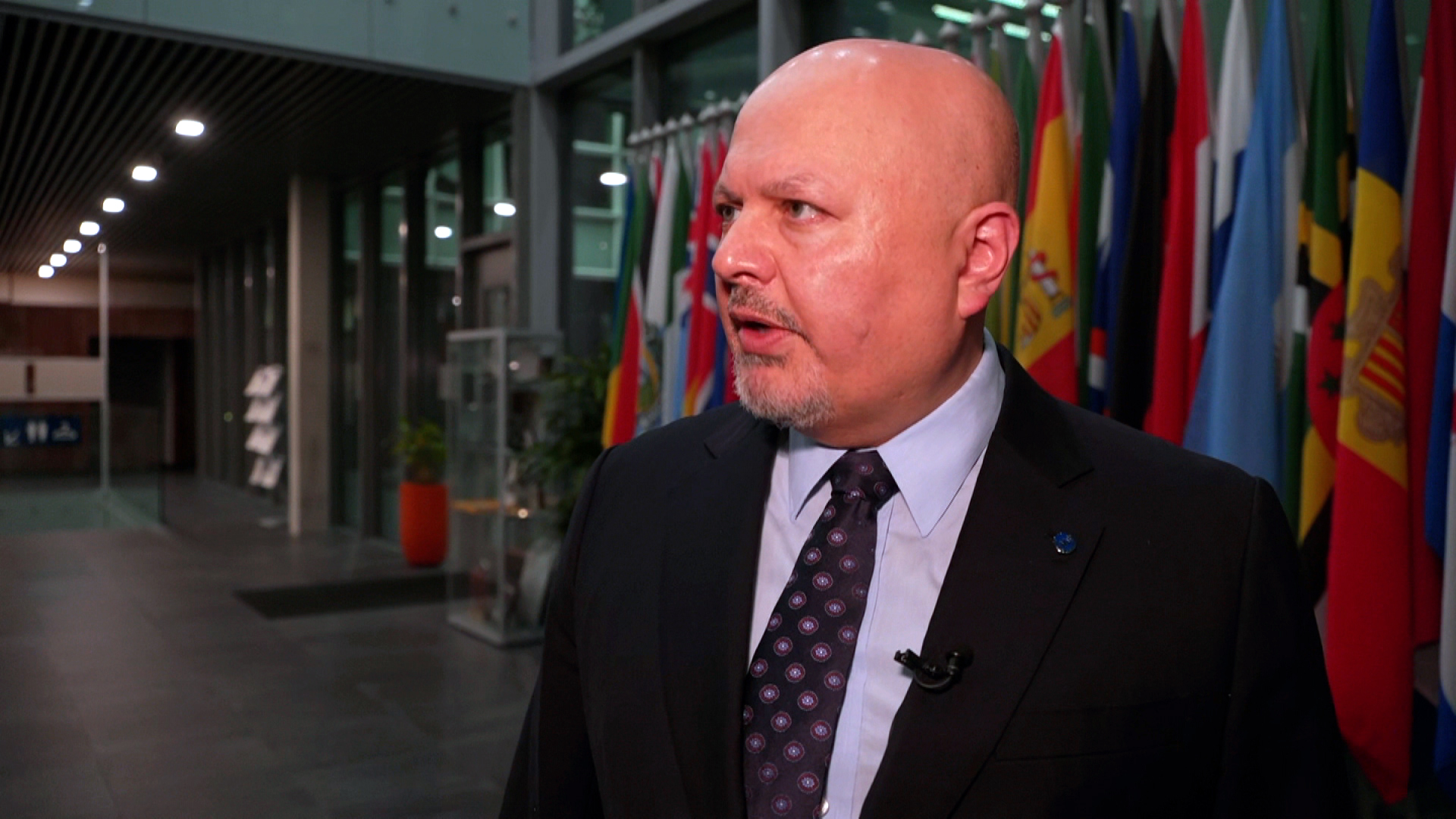
It is not outside the realm of possibility that Russian President Vladimir Putin could be tried by the International Criminal Court at some point, the ICC Chief Prosecutor Karim Khan said Friday.
“Nobody should feel they have a free pass,” he said.
“I think those that think it’s impossible fail to understand history because the major Nazi war criminals, (former Yugoslav President Slobodan) Milošević, (former Bosnian Serb politician Radovan) Karadžić, (former Bosnian Serb military officer Ratko) Mladić, former (Liberian) President Charles Taylor, (former Prime Minister) Jean Kambanda from Rwanda, Hissène Habré (former president of Chad). All of them were mighty, powerful individuals, and yet they found themselves in courtrooms whose conduct was being adjudicated over by independent judges. And that also gives cause for hope that the law can, however difficult it may be, the law can be supreme,” Khan said.
The ICC on Friday issued arrest warrants for Putin and Russian official Maria Lvova-Belova relating to an alleged scheme to forcibly deport thousands of Ukrainian children to Russia.
“I think the message must be that basic principles of humanity bind everybody. And nobody should feel they have a free pass. Nobody should feel they can act with abandon, and that definitely, nobody should feel that they can act and commit genocide or crimes against humanity or war crimes with impunity,” Khan said.
The prosecutor said it was important for the ICC to start these investigations as quickly as possible with a focus on the plight of victims.
“The law must be about, and particularly criminal law, must be about victims and survivors,” Khan added.
Watch the interview with Karim Khan:
Analysis: Here’s how war crimes prosecutions work
From CNN’s Zachary B. Wolf
After more than a year of international outrage at Russia’s invasion of Ukraine and shocking atrocities, there’s an arrest warrant out for Russian President Vladimir Putin.
The International Criminal Court on Friday announced charges against Putin and Russian official Maria Lvova-Belova relating to an alleged scheme to forcibly deport thousands of Ukrainian children to Russia.
Here’s a very broad look at how war crime prosecutions work:
What is a war crime? The ICC has specific definitions for genocide, war crimes, crimes against humanity and the crime of aggression. Specifically, targeting civilian populations, violating the Geneva Conventions, targeting specific groups of people and more could be potential Russian war crimes.
Who can be tried by the ICC? Anyone accused of a crime in the jurisdiction of the court, which includes countries that are members of the ICC, can be tried. The court tries people, not countries, and focuses on those who hold the most responsibility: leaders and officials. While Ukraine is not a member of the court, it has previously accepted its jurisdiction. Putin is therefore eligible for being indicted by the court for ordering war crimes in Ukraine.
However, the ICC does not conduct trials in absentia, so he would either have to be handed over by Russia or arrested outside of Russia. That seems unlikely as long as Putin is in power.
How does the ICC bring proceedings? Court proceedings can be brought in one of two ways: Either a national government or the UN Security Council can refer cases for investigation. Russia, a permanent member of the UN Security Council, has veto power over council actions. It was requests by 39 national governments, most of them European, that sparked the current investigation.
How long do these investigations take? If justice in general moves slowly, international justice barely moves at all. Investigations at the ICC take many years. Only a handful of convictions have ever been won.
Why would a Ukraine prosecution be different? The international outcry against Russia is unique, and that could give the court the ability to operate differently, according to Ryan Goodman, a law professor at New York University and co-editor-in-chief of Just Security, an online forum. “It’s hard to judge the ICC’s investigation based on past practice,” Goodman said in an email after the court initially launched its investigation back in 2022. “In the Ukraine situation, the prosecutor is buttressed by an extraordinary outpouring of support from dozens of countries, which I expect will be followed by an infusion of resources.”
Read more about these investigations and read about the scheme involving Ukrainian children taken to Russia.
ICC president says Putin arrest warrant sends “important signal” to the world
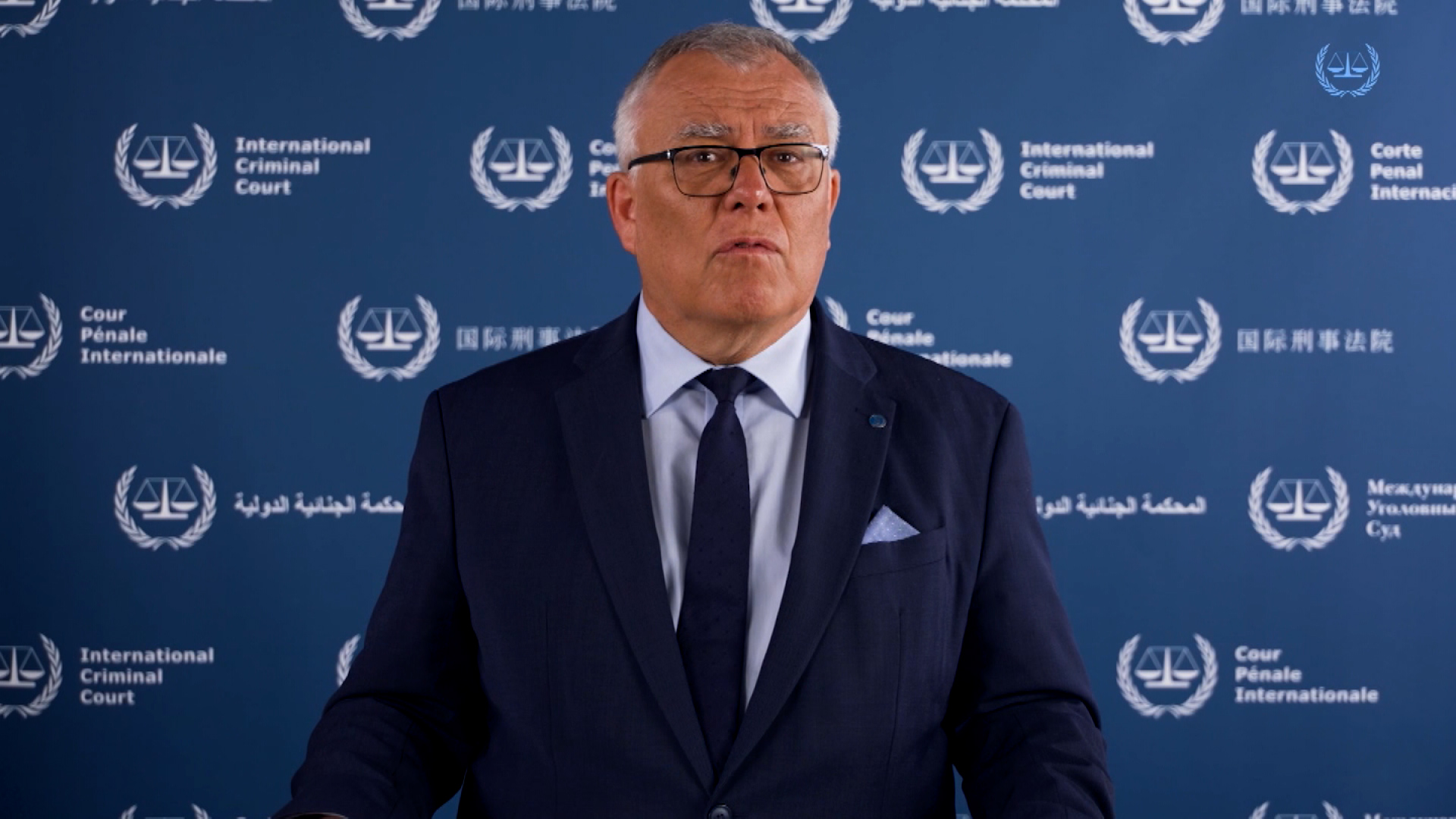
The arrest warrant issued for Russian President Vladimir Putin is a “very important signal” for the world and the victims of the alleged scheme to forcibly deport thousands of Ukrainian children to Russia, the president of the International Criminal Court said Friday.
A warrant was also issued for Russian Commissioner for Children’s Rights Maria Lvova-Belova.
The arrest warrants are not “magic wands,” Judge Piotr Hofmański said, speaking to CNN from The Hague in the Netherlands. “But we believe in the deterrence effect of the arrest warrants issued in our proceedings, and we believe that it’s a very important signal for the world that we are doing our job, that the victims are not left alone, they are not forgotten, and we just are doing what’s expected.”
Hofmanski compared the arrest warrant for Putin to a kind of sanction for the Russian leader.
“There are 123 states — two-thirds of states of the world — in which he will not be safe,” he said.
Asked whether the ICC is asking signatory countries to arrest Putin if he travels to them, Hofmanski referred to ICC statute, saying, “All state parties have the legal obligation to cooperate fully with the court, which means that they’re obliged to execute arrest warrants issued by the court.”
He also said that these warrants are not “the end of the game,” adding that the case “can expand and also cover other atrocities allegedly committed on the territory of Ukraine.” Hofmanski said he has no knowledge of any other actions coming down the pike.
Hofmanski said the contents of the arrest warrants were secret but that the ICC had agreed to publish the information about the existence of the warrants and the crimes allegedly committed by Putin and Lvova-Belova.
Remember: The ICC does not conduct trials in absentia, so Putin would either have to be handed over by Russia or arrested outside of Russia.
CNN’s Jorge Engels contributed to this post.
